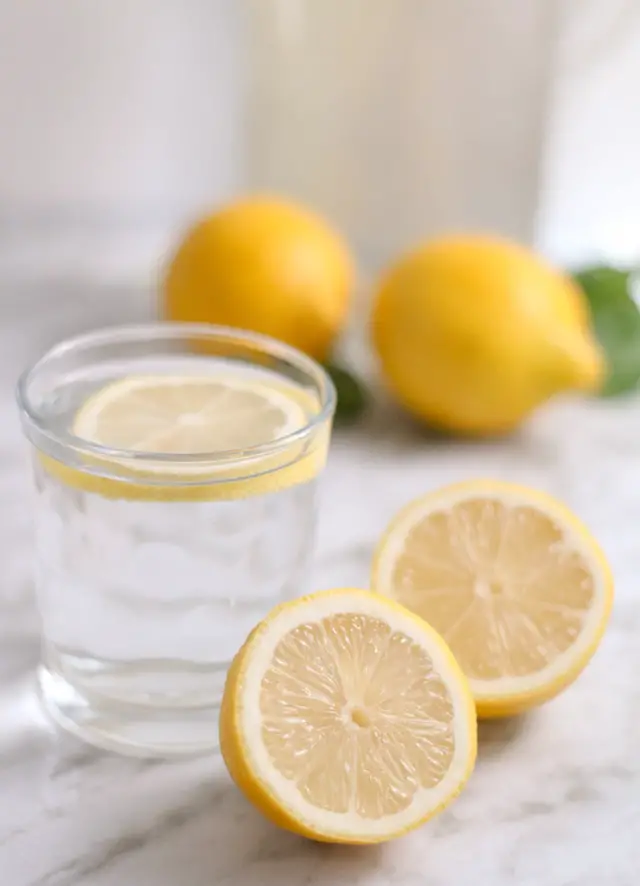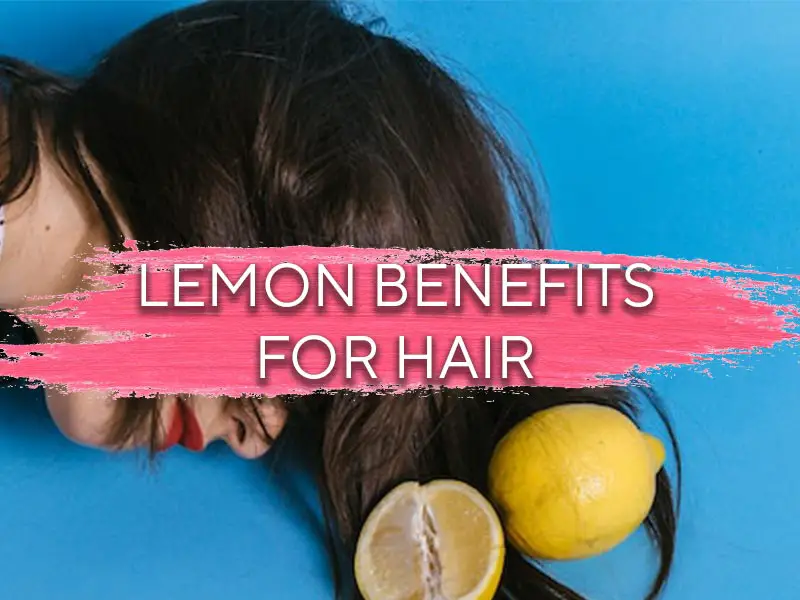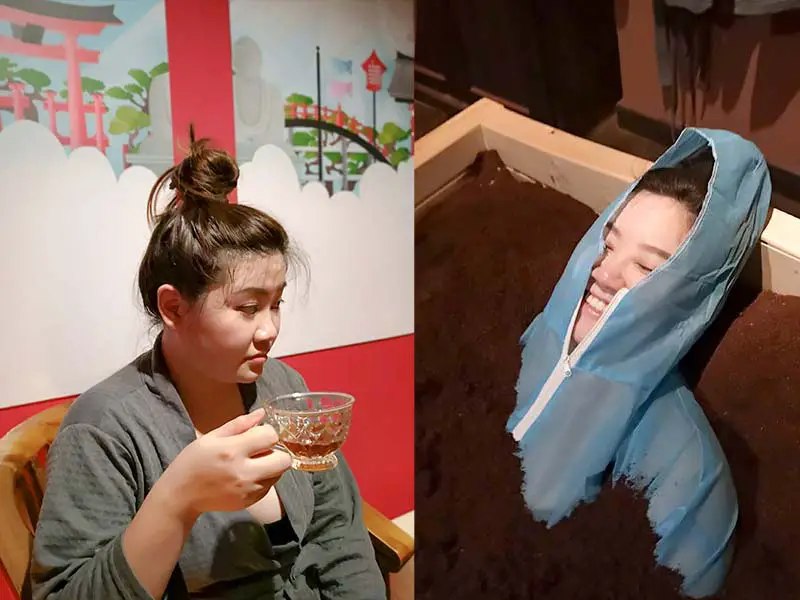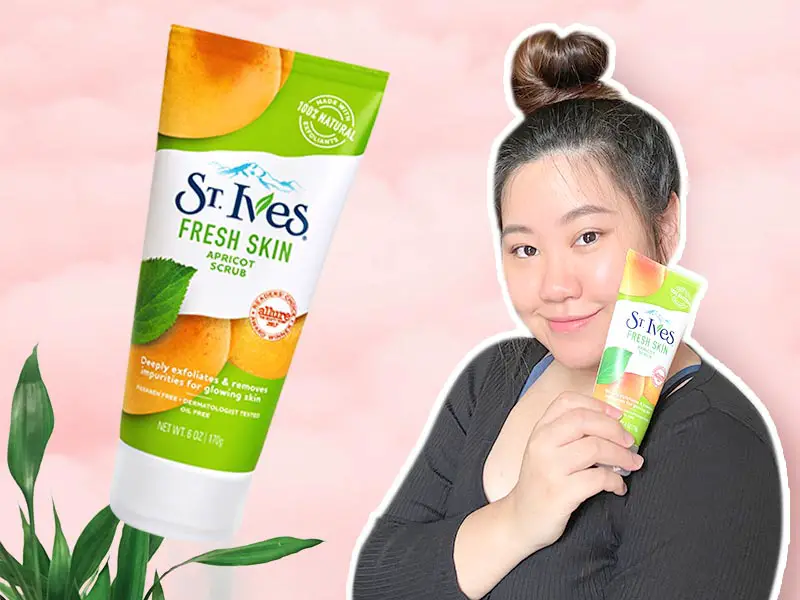Lemon Benefits For Hair
Lemons offer a delightful tang to various culinary creations, ranging from beloved dishes and baked goods to refreshing beverages. Beyond their culinary versatility, lemons possess remarkable properties that extend beyond the kitchen domain. Notably, they have the potential to confer advantages to both skin, hair, and overall well-being. Allow me to shed light on the advantageous aspects of utilizing lemon juice for enhancing hair health.
Lemon has proven to be a natural and effective hair savior, capable of granting one the hair of their dreams: long, beautiful locks that exude vitality. Being a rich source of vitamin C, lemon plays a pivotal role in scalp cleansing, hair follicle improvement, and the enhancement of overall hair health. It is essential to explore the various ways in which lemons can bestow benefits upon your hair and how you can leverage their potential to achieve fabulous-looking tresses.
The following is some lemon benefits for hair that you should know about:
1. Encourages hair growth
One of the remarkable benefits of lemon juice is its ability to promote hair growth. If you are troubled by excessive hair fall, placing your trust in lemon juice can help you achieve long and voluminous hair. The richness of vitamin C in lemons stimulates collagen production, leading to enhanced hair growth. Additionally, the acidic properties of lemon aid in unclogging and activating dormant hair follicles, contributing to the prevention of hair loss. However, it is crucial to acknowledge that while lemon juice can be a valuable aid in treating hair loss, it is equally important to address the underlying factors contributing to this concern. Taking a comprehensive approach will yield more effective and lasting results in maintaining healthy and vibrant hair.
Regular use of lemon in hair care routines may help maintain a healthy scalp environment, supporting optimal conditions for hair growth and fostering the development of strong and vibrant hair strands. It is essential to approach hair growth with a comprehensive approach that includes a balanced diet, proper hair care practices, and a healthy lifestyle. By incorporating lemons into this regimen, you may experience enhanced hair growth and an overall improvement in the health and appearance of your hair.
2. Renew the appearance of hair

For those dealing with rough or curly hair, lemon can prove to be a valuable ally. The presence of limonene in lemons facilitates the renewal of dry, frizzy, and coarse hair, lending it a revitalized appearance. Lemon juice is enriched with antioxidants and essential nutrients that contribute to maintaining hair smoothness and overall health. High levels of folic acid and vitamin C in lemon juice further bolster its effectiveness in promoting hair vitality. Additionally, lemon juice aids in reducing excess oiliness, leaving your hair lengths with a lustrous, silky finish. Embracing the use of lemon juice can significantly improve the texture and appearance of your hair, providing the desired renewal and manageability to your strands.
3. Treats dandruff and alleviates scalp itch
Lemon proves to be an effective remedy for treating dandruff and alleviating an itchy scalp. By incorporating lemon into your hair care routine, you can foster healthy and non-oily hair, leading to a dandruff-free mane. The anti-fungal and cleansing properties of lemon play a crucial role in eliminating buildup and excess oil from the scalp, thereby allowing better control over oil production and promoting overall scalp health.
To effectively combat dandruff and itchiness, consider preparing a light scrub using lemon juice and olive oil, which can be gently applied to the scalp before shampooing. This combination helps to efficiently remove accumulated oil, dirt, and impurities while providing relief from itchiness. With consistent usage, this lemon-based treatment can serve as a reliable solution to eliminate dandruff and maintain a nourished, itch-free scalp in the long run.
4. Reduced oil on scalp and dandruff
Indeed, the citric acid present in lemons offers potential benefits that can directly target the root of common hair issues, especially for individuals with dry scalp or dandruff.
When using a lemon juice hair rinse, it is crucial to massage the mixture into the scalp thoroughly. Doing so can be particularly beneficial for those dealing with seborrheic dermatitis, a type of dandruff, as lemon juice may help absorb excess oils that contribute to this scalp condition. It is noteworthy that these effects are applicable to all hair colors and can offer relief and improvements to individuals experiencing these concerns. By incorporating lemon juice into your hair care routine, you may find it to be a natural and cost-effective remedy to address reduced oil and dandruff, promoting a healthier scalp and overall hair health.
5. Improve hair shine
Lemon juice can impart a noticeable shine to hair, regardless of its color, particularly when exposed to sunlight.
For optimal results, consider incorporating 2 tablespoons of apple cider vinegar into your preferred lemon juice hair rinse (as mentioned in the aforementioned options). After preparing the mixture, ensure an even distribution throughout your hair, allowing it to sit for a few minutes before applying conditioner and rinsing it out.
By following this method, you can enhance the shine and luster of your hair, reaping the benefits of lemon juice’s natural properties and the added touch of apple cider vinegar. This simple and effective treatment can leave your hair looking radiant and vibrant, offering a natural solution to achieve shinier locks.
6. Prevents dandruff
Dandruff can be both unsightly and a sign of inadequate hair care. To effectively prevent dandruff, it is essential to identify the underlying causes that contribute to its development. Factors such as an unhealthy diet, excessive stress, and potential internal health issues or medical conditions may all play a role in dandruff formation.
Lemon juice, due to its antibacterial properties, is considered an excellent anti-dandruff remedy and is widely preferred by many. By applying lemon juice to the scalp, it helps cleanse the hair follicles and regulates the scalp’s natural oil balance, preventing it from becoming excessively dry, itchy, or oily.
Incorporating lemon juice into your hair care routine can aid in maintaining a healthier scalp and reducing the occurrence of dandruff. However, it is also crucial to address any internal health concerns and adopt a well-balanced diet and stress-management practices to comprehensively tackle dandruff prevention. Combining these approaches can lead to more effective and lasting results in maintaining a dandruff-free and healthy scalp.
7. Lighten the hair
The anecdotal evidence surrounding lemon’s lightening effects on hair can be found in various online sources discussing natural hair lighteners.
According to these sources, the citric acid present in lemon juice acts as a natural bleach or oxidizing agent. It works by chemically reducing the color pigment, or melanin, in the hair, resulting in a whitening effect. This lightening process is further accelerated when the hair is exposed to sunlight.
It’s worth noting that the lightening effects of lemon juice are typically more pronounced on lighter hair colors, such as blonde and light brown. While some effects may be observed on darker brown and black hair, they are generally less noticeable.
To lighten your hair using lemon juice, you can try one of the following three methods:
- Dilute fresh lemon juice in water and rinse your hair with the mixture.
- Mix a few drops of lemon essential oil in a carrier oil and a glass of water, then apply it to your hair.
- Crush vitamin C tablets and add them to your shampoo for a more gradual lightening effect. Vitamin C or ascorbic acid has hair growth promoting effects.
Regardless of the method chosen, the most significant results will be observed when your lemon-treated hair is exposed to sunlight.
As with any hair treatment, it’s essential to consider individual hair type and sensitivity. Patch testing is recommended before applying lemon juice or any new product to a larger hair area to ensure compatibility and avoid any adverse reactions. Additionally, maintaining proper hair care practices and avoiding excessive exposure to sunlight can help preserve hair health while enjoying the lightening effects of lemon juice.
8. Promote healthy scalp
Lemon can play a significant role in promoting scalp health through its various beneficial properties.
Lemon’s ability to regulate oil production on the scalp ensures a balanced and healthy environment. By hydrating dry skin on the scalp, it effectively combats issues related to dryness and flakiness, contributing to improved scalp health.
Moreover, the antifungal properties of lemon aid in preventing and managing scalp problems such as flaking, scalp acne, and dandruff. These properties help to maintain a clean and healthy scalp environment, reducing the likelihood of fungal growth and associated scalp issues.
Incorporating lemon-based treatments into your hair care routine can lead to a nourished and problem-free scalp. It is essential to maintain a consistent and well-rounded approach to scalp health, encompassing proper hair care practices and a balanced diet, to maximize the benefits of using lemon for promoting a healthy scalp.
How to use lemon juice for hair growth?

Now that you know about the benefits of lemon for hair, let’s look at its application. Here, I will share with you 5 methods on how to use lemon juice for hair growth. Starting with:
a. Plain lemon juice mask for hair growth
If you are looking for a quick and simple remedy to promote hair growth and improve hair quality, using lemon juice can be a viable option. Lemon juice is rich in vitamin C, essential nutrients, and possesses antifungal properties that can benefit hair growth and overall hair health. Using this treatment once a week is recommended to achieve optimal results.
To prepare the lemon juice treatment, you will need 1-2 lemons. Follow these steps:
- Thoroughly wash the lemons and extract the juice from them.
- Evenly apply the lemon juice to your scalp and hair, gently massaging it for a few minutes.
- Allow the lemon juice to sit on your hair for no more than 10 minutes.
- Rinse it off with lukewarm water.
It is important to note that fresh lemon juice has bleaching properties, so it is essential not to leave it on the scalp for an extended period. By following these instructions, you can safely and effectively use lemon juice to promote hair growth and enhance the quality of your hair.
b. Curry leaves, lemon juice, and coconut oil hair mask
The combination of curry leaves, lemon juice, and coconut oil creates a potent hair mask that can significantly enhance hair growth and overall hair health. Curry leaves are rich in nutrients like vitamin B6, proteins, calcium, iron, and amino acids, providing nourishment to the hair, preventing hair fall, and safeguarding the scalp from infections and free radical damage.
Coconut oil is widely known for its exceptional benefits in hair care. Coconut promotes scalp health, aids in hair growth, and offers a multitude of advantages. When these two powerful ingredients are combined with lemon juice, the effectiveness is further enhanced.
To prepare the mask, you will need:
1 tablespoon of coconut oil
Juice of half a lemon
Two sprigs of curry leaves
Here’s how to make and use the mask:
- Blend two handfuls of curry leaves into a smooth paste.
- Mix the curry leaves paste with coconut oil and the juice of half a lemon.
- Apply the mixture thoroughly to the scalp and hair, gently massaging it for a few minutes.
- Allow the mask to sit on the hair for 15-20 minutes.
- Rinse it off thoroughly.
For optimal results, use this nourishing hair mask twice a week. With regular application, you can expect to enjoy longer, healthier hair and promote improved hair growth.
c. Combination of lemon juice, castor oil, and olive oil hair mask
The combination of lemon juice, castor oil, and olive oil creates a highly beneficial hair mask that promotes hair growth and overall hair health. Castor oil is well-known for its efficacy in stimulating hair growth and preventing hair breakage and split ends. When combined with lemon juice, it further enhances blood circulation to the scalp and revitalizes dull and damaged hair. The addition of olive oil nourish hair follicles with its wealth of vitamins and fatty acids. It also strengthens hair strands, and prevents moisture loss from the hair. Additionally, the antimicrobial properties of olive oil help combat dandruff and bacterial infections, promoting a healthy scalp environment.
To prepare and apply the mask, gather the following ingredients:
2 tablespoons of olive oil
1 tablespoon of castor oil
4-5 drops of lemon essential oil
Follow these steps to make and use the mask:
- Mix the olive oil and castor oil together and slightly warm them up.
- Remove the oils from heat and add 4-5 drops of lemon essential oil.
- Apply the warm oil blend to your scalp and hair, gently massaging it for 15 minutes.
- Leave the oil on your hair for half an hour.
- Rinse off the oil with lukewarm water.
After applying the oil blend and washing your hair, you can skip using a conditioner as the castor and olive oils provide natural softness and moisture to the hair.
Using this lemon juice, castor oil, and olive oil mask twice a week can yield impressive results in promoting hair growth, nourishing the hair, and maintaining a healthy scalp. Experience the benefits of these nutrient-rich oils and lemon for yourself, and enjoy long, lustrous, and rejuvenated hair.
d. Honey lemon hair mask
The combination of honey and lemon creates a nourishing and moisturizing hair mask that offers multiple benefits. Honey is known for its hair repairing properties and is enriched with minerals and vitamins that complement lemon’s effects on hair growth. Moreover, the antiseptic and antibacterial properties of this mask contribute to maintaining a healthy scalp, supporting continuous hair growth.
To prepare the hair mask, gather the following ingredients:
1 tablespoon of lemon juice
2 tablespoons of honey
3-4 drops of essential oil (optional)
2 tablespoons of olive oil (if needed)
Follow these steps to create and apply the mask:
- Mix the lemon juice and honey together.
- If desired, add 3-4 drops of any essential oil to the mixture (optional).
- If the consistency is too runny, you can add olive oil to achieve the desired thickness. If not needed, you can skip this step.
- Thoroughly apply the mask to the scalp and hair, ensuring even coverage.
- Allow the mask to sit for 20 minutes.
- Wash off the mask and gently pat your hair dry.
Honey acts as a natural conditioner, so after using this hair mask, you may not need to condition your hair separately. The mask provides both nourishment and hydration to the hair, leaving it moisturized, healthy, and revitalized. Regular use of this lemon and honey hair mask can contribute to stronger and more lustrous hair, promoting overall hair health and growth.
e. Lemon juice and aloe vera hair mask
The combination of lemon juice and aloe vera gel creates a potent hair mask that offers numerous benefits for hair health. Aloe vera is renowned for its versatility in addressing various hair problems, and when combined with lemon for hair growth, the results can be remarkable. Aloe vera contains essential vitamins such as A, B, C, E, and folic acid, making it an excellent nourishing agent for the hair.
To prepare and use the mask, you will need:
1 tablespoon of lemon juice
2 tablespoons of aloe vera gel
Here’s how to make and apply the mask:
- Thoroughly mix the lemon juice and aloe vera gel. If the quantity is not sufficient, you can prepare more of the mixture, maintaining the ratio of lemon juice to aloe vera as 1:2.
- Apply the mask generously to both the scalp and hair, ensuring even coverage.
- Allow the mask to sit on the hair for 30 minutes.
- Rinse off the mask with lukewarm water.
Regular application of this lemon and aloe vera gel mask can work wonders for your hair, promoting nourishment, shine, and length. If you experience scalp infections or dandruff, using this hair mask at least once a week can help alleviate these issues. The natural goodness of aloe vera and the hair growth-enhancing properties of lemon make this mask a simple yet effective solution for healthier and more vibrant hair.
Can drinking lemon juice promote good hair health?

While lemons offer a plethora of health benefits due to their abundance in vitamin C, soluble fiber, and beneficial plant compounds, there is currently no concrete scientific evidence to establish a direct link between consuming lemon juice and improving hair health. However, it is important to note that lemons have been shown to aid in weight loss, reduce the risk of heart disease, anemia, kidney stones, and digestive issues based on existing research. Anecdotal evidence also suggests a potential role in cancer prevention.
Though no specific studies have yet supported the claim of lemon juice directly benefiting hair health, incorporating lemons into your diet can still be a beneficial practice, given their proven health advantages in other areas. The inclusion of fresh lemon juice in your daily intake may contribute to an overall improvement in wellness and could potentially have indirect positive effects on hair health, although more research is required to establish this connection definitively.
Side effects of lemon juice
Skin irritation
One potential side effect of lemon juice is skin irritation. While anecdotal evidence suggests that lemons may aid in treating dry skin and dandruff, caution should be exercised, particularly for individuals with eczema or psoriasis. The high concentration of citric acid in lemon juice can be potent and may lead to skin irritation. If you notice any signs of redness, increased irritation, or itchiness, it is advisable to discontinue the use of lemon juice on the affected areas. Prioritizing skin sensitivity and seeking alternative remedies or consulting a healthcare professional is crucial to ensure the well-being of your skin.
Skin pigmentation in some people
Consuming lemon juice or coming into contact with lemon and other plants like oranges, parsley, and parsnips can potentially lead to a condition known as phytophotodermatitis. This reaction occurs due to contact with certain plants and results in inflammation, blistering, and subsequent dark pigmentation spots on the skin, which may persist for several weeks.
While phytophotodermatitis doesn’t directly impact hair health, it can affect the scalp, particularly if it is exposed to sunlight. Hence, it is essential to be cautious while handling these plants, as some individuals may be more susceptible to this contact reaction than others. Taking necessary precautions and avoiding direct exposure to sunlight after contact with these plants can help prevent the occurrence of phytophotodermatitis and protect the health of your skin and scalp. If any adverse reactions are experienced, seeking medical advice is recommended for appropriate management.
Can you apply lemon juice directly on your hair?
Yes, you can apply lemon juice directly to your hair. When using pure lemon juice without any other ingredients, it is essential to be cautious about the duration of application. To avoid potential adverse effects like dryness or damage, it is advisable not to keep the lemon juice on your hair for more than 15 minutes.
The acidity and potent nature of lemon juice can have varying effects on different hair types and sensitivities. Hence, it is essential to monitor the time of application and perform a patch test before full application to assess your hair’s reaction to lemon juice. Additionally, mixing lemon juice with other ingredients or diluting it with water can be a safer approach to ensure a more gentle and beneficial treatment for your hair.
Can lemon juice damage your hair?
Fresh lemon juice, when applied to the hair in moderation, should not cause significant damage. However, prolonged exposure to the sun after applying lemon juice can potentially harm the hair’s outer protective layer, known as the cuticle. Therefore, it is advisable to exercise caution and limit sun exposure after using lemon juice on the hair.
To minimize the risk of damage, it is recommended to sit in the sun only until the lemon juice has dried, which typically takes no longer than one hour. Afterward, rinsing the hair thoroughly and applying a conditioner can help maintain its health and hydration. Additionally, adding a teaspoon of oil to the lemon juice solution can offer an extra layer of protection for the hair.
By adopting these preventive measures and using lemon juice responsibly, you can enjoy the potential benefits it may offer without compromising the health and integrity of your hair.
Will lemon juice turn your hair grey?
The claim that lemon juice can turn hair grey is not well-supported by scientific evidence, but some people hold this belief. This notion is based on the argument that lemon juice contains a significant amount of citric acid, which, when applied directly to the hair, could potentially damage keratin, a protein essential for hair health.
While lemon juice may lighten hair color due to its bleaching properties, it is essential to avoid applying it directly to the hair in concentrated form. Direct and excessive application of lemon juice can indeed have adverse effects on hair texture and might lead to unwanted color changes.
To minimize potential damage, it is advisable to use diluted lemon juice or incorporate lemon-based treatments with caution. Moderation is key to avoiding any unwanted changes to hair color or texture. If concerned about the impact of lemon on your hair, it is recommended to perform a patch test before full application or seek advice from a hair care professional.
How often should you apply lemon juice on your hair?
To effectively manage dandruff, you can apply lemon juice to your scalp. However, it is essential to strike a balance, as frequent use of lemon may lead to dryness in your hair.
For best results and to avoid potential hair damage, it is recommended to use lemon juice on your hair and scalp up to two times a week. This frequency allows you to benefit from its dandruff-fighting properties without overdoing it, ensuring your hair and scalp remain properly hydrated and healthy.
Excessive use of lemon on your hair and scalp can have detrimental effects, such as causing dryness, frizz, and brittleness. To maintain the optimal health and appearance of your hair, it is crucial to exercise moderation and avoid overusing lemon juice as a hair care remedy.

Valerie, Beauty Blogger In Malaysia
Valerie Seow is an exemplary beauty blogger renowned for her exceptional expertise and profound knowledge in the world of beauty and skincare.
With years of hands-on experience and a vast array of industry insights, Valerie has cultivated a loyal following who eagerly seek her guidance on beauty-related topics. Her engaging content showcases her proficiency in cosmetics, skincare routines, and the latest trends, all of which she imparts with clarity and authenticity.
Valerie’s further interest in aesthetics bolster her credibility, enabling her to dispense professional advice and recommendations that empower her audience to make informed decisions on their beauty journey. With her passion, precision, and profound expertise, Valerie Seow continues to inspire and uplift the beauty community while setting the standard for excellence in the realm of beauty blogging.






